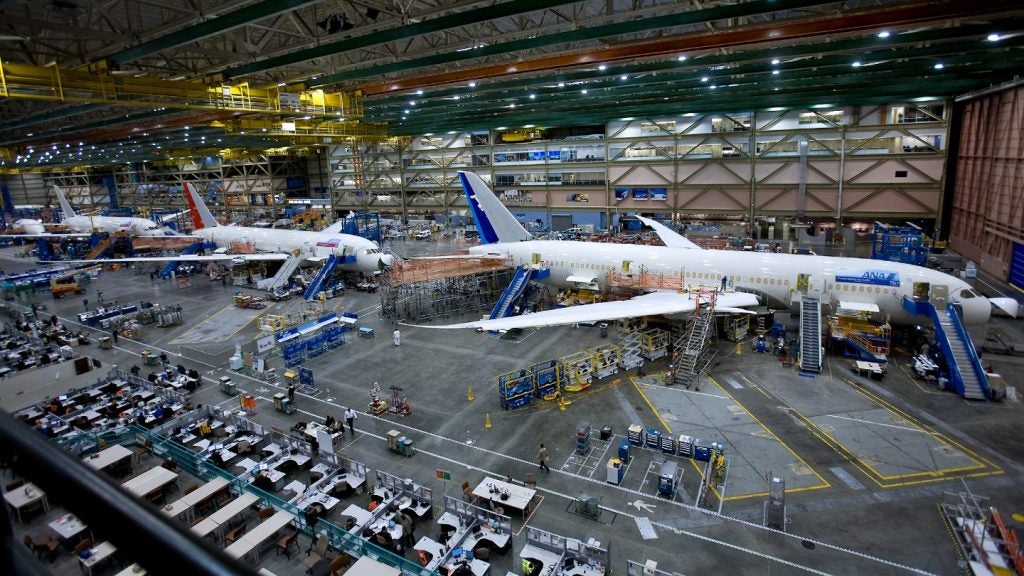We sit down with DXC Technology's Derek Allison, VP of UK Public Sector for Aerospace and Defence, Paul O'Shaughnessy, UK Defence Account Executive, and Shelli Wright, AE UK Government Relations for DXC Technology.
DXC Technology, a trusted partner, with over 45 years of expertise in the UK aerospace and defence sector has been instrumental in delivering mission-critical systems, safeguarding national security, and advancing technologies such as cybersecurity, AI, and IoT.
Derek and Paul shed light on DXC Technology's journey, its commitment to security, technologies showcased at DSEI 2023, and their vision to shape the future of aerospace, defence and security technology.
Harry McNeil (HM): DXC Technology has a long and distinguished history in aerospace and defence. Can you elaborate on some of the key milestones and achievements in this sector?
Derek Allison (DA): DXC Technology, including our previous guises under Electronic Data Systems (EDS), Hewlett-Packard (HP) and Computer Sciences Corporation (CSC) has a total of over 45 years of experience in the industry. This dates back to our initial large outsourcing contracts delivering the first level of fundamental mission-critical systems for clients across the industry – a rich industry history we’ve retained ever since. The concepts of our work have been the same through this journey, providing the capabilities to deliver on our client’s mission, but we’ve gone from being just a core infrastructure provider to transforming our offerings across the data, analytics, and application spaces to service clients end to end across their supply chain. These big outsourced platforms have for years been neglected by organisations across the industry and have led to a legacy of ‘technical debt’, so now it's our job to help our clients transform to migrate from those systems. All of this is only possible by us expanding our capabilities across the application space, which is a great springboard for us to deliver better services to the entire UK defence industry.
Paul O'Shaughnessy (PO): In terms of milestones over the last two and a half years, we’ve moved out of not only providing this infrastructure layer to clients but also leveraging our business and political support in the space to move up the technology stack into an area providing applications or physical automation.
(HM): The aerospace and defence industry is known for its stringent security and precision requirements. How does DXC Technology ensure the security and quality of its services for clients in this field?
(DA): Being a technology company of 130,000 employees, we like to have our security wrapped around our services and internal processes, and it starts with our people. The best way we can protect our clients is by having the right people who are absolutely on the ball on security and having the processes to support that. So first, we must get our security right on our systems and that means using that same technology to wrap our security services as we do for our clients. As part of this process, we deliver end-to-end services and that's no more important than for clients like the Ministry of Defence (MoD), where most security threats will come from people-related incidents, rather than the technology.
(HM): DXC Technology is showcasing some exciting technologies at the DSEI 2023 expo, including holoportation and mixed reality devices. It's not something I’m familiar with myself. Can you explain how these technologies benefit military operations and what sets DXC Technology apart in their implementation?
(PO): We’re delighted to be presenting the holoportation capability with Microsoft, our partner, which is the first time the technology has been demonstrated here in Europe. Part of our strategic partnership level with Microsoft has enabled us to get to a point, where we can bring these capabilities to the defence industry and align them to our security wrap. The technology is well put together and immerses commanders, soldiers, and sailors to understand the mixed and virtual reality spaces, so they can better understand the context in which they’ll need to operate in the future. Simply put, the technology is utterly game-changing and allows us to deliver a fighting edge that doesn’t currently exist.
(HM): Can you share some examples of recent projects or collaborations that have significantly impacted national security or military readiness?
(PO): At the highest classification of what we deliver into the defence industry, we've increased the ability for users to operate collaboratively by 100% in the last year to 18 months. This is transforming the ability of the MoD to protect its confidential engagements when the threats across both the physical and virtual worlds are much higher.
(DA): A broader example to note would be the effect of Covid-19 on ways of working and how we’ve empowered remote working across the supply chain at the MoD.
(PO): As Derek says, in the last two years, we've rolled out up to 80,000 devices to the MoD. This has meant uprooting a system revolving around office working and transforming that so users can work from home, with the same security measures in place. As you can imagine this has been a massive transformation program to undertake, which we’ve done successfully.
(HM): DXC Technology emphasises its commitment to sustainability and responsible business practices. How does the company align these principles with its aerospace and defence industry services?
Shelli Wright (SW): Social value is intrinsic to what we do as a business, not just because we are working in the public sector but it's part of our bids and our people and culture. One of our core values and a fundamental part of how we do business, centres on stewardship and delivering excellence to the communities in which we work. Ultimately, the more we invest in social value, the more our bottom line improves, and that’s true throughout our culture. By applying this to our work it means we understand the citizens we are delivering for and our customers and the conversations we are having with them. Within our broader social value strategy, people are a central pillar, so we do a lot of work with STEM and skills development; to help plug the massive skills shortage in this country, which is impacting the aerospace and defence industries. We’re currently working with the defence industry to help address that technological skills gap, whether through volunteering work or from initiatives across our own organisation. We've now delivered 130 hours of STEM support from one of our sites alone over the last year, which demonstrates our commitment to tackling the gap. Separately, we've linked this broader social value strategy with our Manchester United partnership, setting up an RAF Football pitch day with the Club, alongside soccer school with the women's team, which all fosters the relationships between our community, customers, and us. Beyond this, our net zero target is a fundamental part of the social value strategy, and we’re increasingly focused on developing software to be more green. We have a big responsibility there, particularly with scope three emissions and helping our customers navigate this, which requires resilience across our supply chains.
(HM): Just one last question to finish off. Can any of you provide insights into DXC Technology’s vision in the future of aerospace, defence, and security technology and how it aims to shape the industry?
(DA): A year ago, we decided to pull together our public sector and defence businesses, along with our large partners who include BAE, Rolls Royce, Leonardo, and the MoD, to start creating a ‘defence ecosystem’. We're on that journey, and the main aim is to integrate our work across the entire process, so if we take, say our nuclear capability, it’s from the submarine that the missile may be carried on to the dock it's kept in – meaning the IT on that boat through to the actual weapon itself is managed by DXC Technology. And even now across that entire supply chain, DXC Technology is a crucial partner, and we need to look at how we can improve this, such as how we collaborate through to the platform we’re using and the economies of scale across that supply chain. Our vision for the future is ensuring a better and secure collaboration across these processes, and we believe we should be at the heart of that.
(PO): Building from Derek's point, it’s clear that right across our supply chain, we are uniquely placed to drive those conversations forward. If you come back to in two years, I expect us to have some fantastic proof points of how we are tying the defence industry base and MoD together, particularly at high classifications.
(HM): Thank you. Well, hopefully, I do come back in two years’ time.
(DA): Don’t wait two years!











